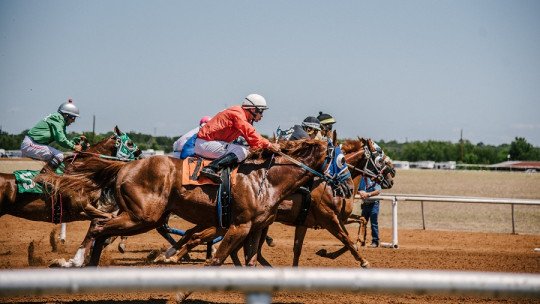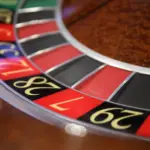
Sports betting addiction is a disorder in which participation in gambling games is frequently repeated, maintaining this behavior over time. Like most psychological disorders, it causes significant discomfort in the person who suffers from it and/or affects important areas of their life (social, work, economic…).
It is a growing problem, especially in the young population. Due to the easy access to betting due to its appearance in the online format, there are even minors who have developed this type of addiction.
It has serious consequences that gradually undermine the mental health, social environment and economy of those who suffer from this addiction. The worst thing is that at first the bets may seem harmless as they may involve a small amount of money, and it may be difficult to perceive until the typical symptoms of dependency appear.
In this article we describe What is sports betting addiction and how to deal with it.
Characteristics of sports betting addiction
It is one of those known as non-substance addictions: it is not an addiction to a physical substance that is consumed, but rather an addiction develops to a certain behavior or action. This action generates a series of pleasant neurochemicals in the body, similar to those produced by drug addiction, which are what get you hooked and you want to feel again and again.
An important difference with substance addictions is that there is no physical dependence, that is, the withdrawal syndrome or what we commonly call “the mono” does not occur. This does not mean that addictions without substance are less dangerous, as is often thought, since psychological and emotional dependence is generated.
This dependency develops over time. At first, betting on games is just entertainment, a seemingly harmless diversion, because it is about a sport that he knows well and bets little money on. We continue betting because of the “high” (the pleasant chemicals) that winning or almost winning bets gives us, even though we don’t win every time and we are already starting to lose money.
However, this high feels less and less despite winning, and the obsessive idea and the need to play again increases, and with it, the discomfort that accompanies this dependency. Life begins to spin uncontrollably around how to get more money to continue betting and even bet on more sports. There are even excessive actions, such as lying about your financial situation to others and starting to steal from those closest to you. Thus he plunges into an even greater maelstrom of discomfort and guilt.
How do I deal with addiction?
Overcoming an addiction as sibylline as sports betting addiction can be quite difficult. Therefore, we propose a series of steps to deal with this situation.
1. Recognize the problem
The first thing is to accept that you have a problem with gambling. It can be difficult to perceive, which is why we have described the characteristics of addiction above. If you are aware of what and what it is like to be addicted to gambling, it is easier for you to detect if you are.
From here, we encourage you to recognize in yourself the signs prior to when you are going to bet because you cannot resist the temptation, that is, perceive the physiological sensations that the dependence on gambling produces. If you are able to detect these signals, you will be able to prevent situations in which it is impossible for you not to bet on games.
2. Ask for help
It is incredibly difficult to overcome any addiction while alone. Therefore, we advise you to ask for help from those close to you. The very act of saying it out loud can help you recognize the problem and commit to solving it. It’s easier to have motivation to do something if you commit to other people and not just yourself.
They can support you and be allies in the fight against addiction. They can help you detect these situations that we told you that must be prevented, and even if you see it necessary, they can be the ones who manage your money. You can also sign a contract with them with their conditions and non-compliance clauses, to further increase your commitment to ending the addiction.
You can also seek professional help. The person who assists you will give you specific advice with proven scientific effectiveness, and will be able to make it easier for you to cope.
3. Controlled betting systems
If, as a therapist, you prohibit the patient from gambling, resistance is generated, and he or she will not accept the treatment. While if you implement controlled betting mechanisms that imply financial limits and control by a family member, they will gain confidence in the process and will have the necessary motivation to overcome the addition.
Therefore, in a first stage it is useful to reduce the degree and frequency of sports betting: this will make it clear that change for the better is possible and will prepare the ground to “cut the corner.”
4. Contact 0
It’s hard to resist the temptation if you have sports betting-related items right under your nose. For this reason, we seek to no longer have contact with this world and avoid at all costs situations that may provoke the desire to gamble again. That is to say, they seek to cut things short. It may mean a radical change in your life, but all of this is necessary to regain control over it.
This ranges from stopping interacting with people you bet with, avoiding routes that are near betting houses or places related to sports, to not watching sports again and disabling all virtual betting options. For the latter, we give you some ideas: eliminate betting applications from all your electronic devices, put parental controls on the devices, ban those websites, and even stop using any electronic device if possible for a while.
5. Set traps for the problem
In addition to the above, we recommend that you set obstacles and reminders for yourself not to bet again. For example, you can limit the amount of money you can spend in a day through the bank app. You can also put a photo with the person with whom you have committed to confront the addiction as your wallpaper, or write on a whiteboard how many days you have not gambled and have it visible.
Even You can make a list of ideas that occur to you and that you would like to do on which you could spend the money that you are going to get again when you stop betting. Put this list in a visible place that will help you remember these goals and give you strength to not fall into temptation, while at the same time creating excitement. It is a powerful emotion that can counteract the discomfort caused by dependency.
6. Differentiate between a setback and starting from scratch
Fighting addiction is a difficult and long process. Therefore, it is important that you keep in mind that if one day, for whatever reason, you gamble again, this does not mean that you have relapsed and have to start from scratch. Anyone can have a bad day, the important thing is that you know how to get back up and continue abstinence as you had been doing up to that point.
Also keep in mind that the amount of money you bet before is not the same as the amount you have bet now; or all the time they spent before thinking, planning, deceiving… to be able to bet, and the time you spent this time. Remember everything you have achieved and realize (friend) that what happened was something specific, and your life will no longer revolve around sports betting.








